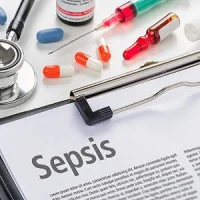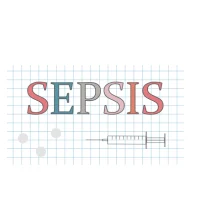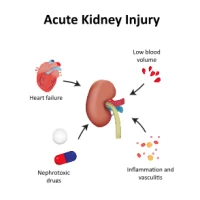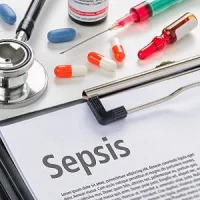Despite decades of sepsis research into a specific immune system-targeting adjunctive therapy, not a single adjunctive treatment is used in current clinical practice. Notably, in recent years, increased appreciation of the importance of sepsis-induced immunoparalysis in causing morbidity and mortality in sepsis patients has resulted in a paradigm shift in the sepsis research field towards strategies aimed at enhancing the immune response, according to a review paper published in Frontiers in Immunology.
Sepsis is defined as life-threatening organ dysfunction caused by a dysregulated host response to infection. The pro-inflammatory response in sepsis is directed at eliminating invading pathogens and involves leukocyte activation, cytokine production, reactive oxygen species and protease release, and complement and coagulation activation. From the 1970s until the turn of the century, it was commonly assumed that sepsis mortality resulted exclusively from this overzealous pro-inflammatory response.
As a consequence, therapeutic research in the sepsis field was solely focused on dampening or preventing excessive inflammation. "However, all clinical trials to date investigating immunosuppressive therapy in sepsis, including anti-endotoxin (signalling) molecules, TLR-receptor antagonists, anti-cytokine therapies (e.g., anti-TNF-α, IL-1RA etc.), and high-dose corticosteroids, have convincingly demonstrated that inhibition of the immune response exerts no beneficial effects in an unselected heterogeneous group of sepsis patients," the journal paper explains.
The paper notes, however, it is conceivable that a subgroup of hyperinflamed patients may have benefited from immunosuppressive therapy if they had been treated according to their immune status. For example, the phase 3 trial evaluating the immune suppressant IL-1 receptor antagonist (anakinra), performed more than 20 years ago, revealed no effect on mortality in severe sepsis patients. However, a post-hoc analysis of this study published many years later demonstrated a significantly lower mortality in a subgroup of patients with macrophage activation syndrome (MAS), which represented approximately 6 percent of the enrolled sepsis patients.
In the past decade, the paper points out, several immunostimulatory treatments have shown promise in preclinical, as well as in case series and/or small clinical studies. Granulocyte-macrophage colony stimulating factor (GM-CSF) and interferon-gamma (IFNγ) are the most extensively investigated immunostimulatory agents in sepsis. These compounds are potent stimulators of myeloid cell function and they potentiate antigen presentation capabilities through increasing mHLA-DR expression on and pro-inflammatory cytokine production by monocytes.
More recently, positive responses to anti-programmed death-1 (PD-1) therapy was demonstrated in the field of oncology and given the many similarities between the immunosuppressive mechanisms in cancer and sepsis, this could be promising for the potential of PD-L1 antagonism in sepsis-induced immunoparalysis. The paper says a number of clinical trials investigating these immunostimulatory treatments are currently underway or planned, illustrating the current interest and relevance of this type of treatment for sepsis.
"However, similar to immunosuppressive therapies, precision medicine is imperative for future trials with immunostimulatory compounds to succeed," the paper stresses. "As such, identifying those patients with a severely suppressed or hyperactive immune system who will most likely benefit from either immunostimulatory or immunosuppressive therapy, and accurate monitoring of both the immune and treatment response is crucial."
Further studies into other body compartments are warranted to increase our understanding of the in vivo immune response in sepsis patients, the paper says, but these insights will not be easily translated in feasible methodology for clinical practice. "As such, finding a reliable biomarker to classify and monitor the overall immune response in patients with sepsis and to guide and personalise immunotherapy remains a holy grail," the paper points out.
Source: Frontiers in Immunology
Image Credit: Pixabay
References:
van Ton AMP, Kox M, Abdo WF, Pickkers P (2018) Precision Immunotherapy for Sepsis. Front. Immunol., 05 September 2018. https://doi.org/10.3389/fimmu.2018.01926
Latest Articles
Sepsis, immune system-targeting adjunctive therapy, sepsis-induced immunoparalysis
Despite decades of sepsis research into a specific immune system-targeting adjunctive therapy, not a single adjunctive treatment is used in current clinical practice. Notably, in recent years, increased appreciation of the importance of sepsis-induced imm










